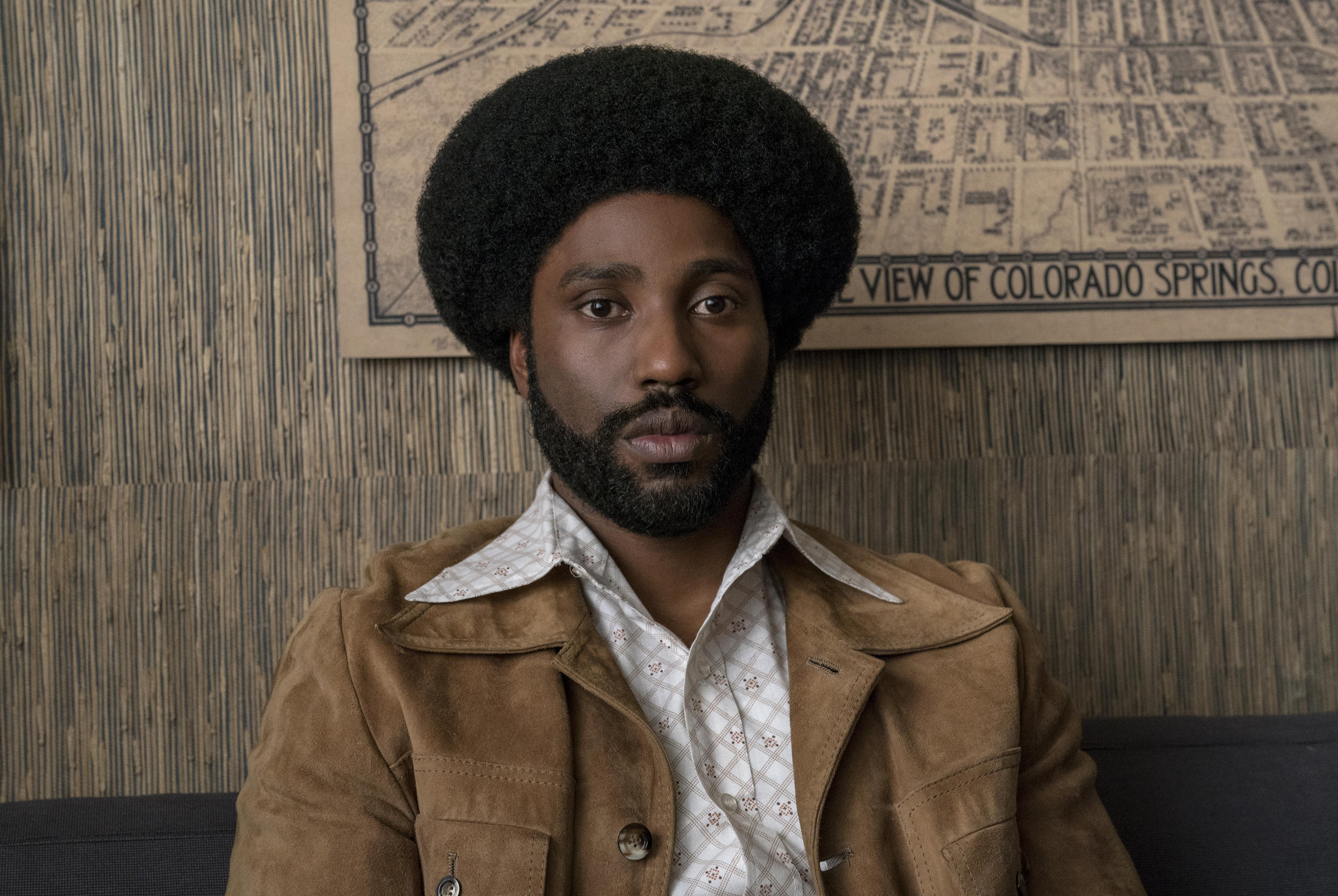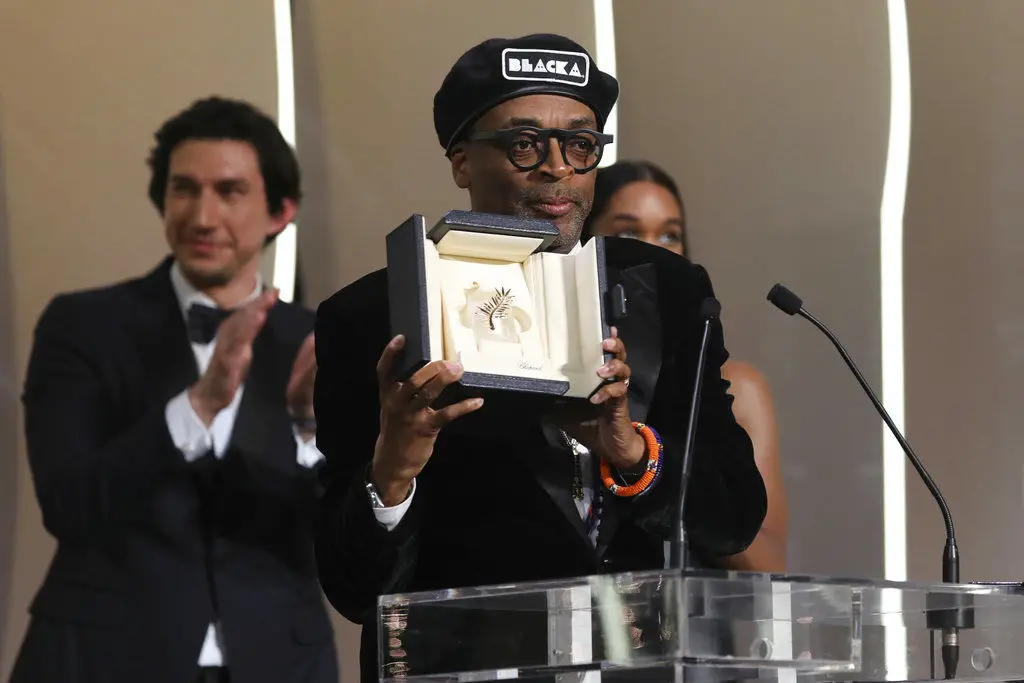Spike Lee doesn’t care about your opinion. Since the release of his directorial debut, “She’s Gotta Have It,” in 1986, the Brooklyn-born filmmaker’s stylistic, oftentimes racially focused films as well as his commentary on American politics and race relations make him one of the most polarizing auteurs of modern cinema.
Whether you agree with his principles or not, Lee’s talent deserves recognition. His works have arguably crafted some of the most culturally significant films of the past decades — “Do the Right Thing” ranks No. 96 on the American Film Institute’s 100 Years…100 Movies list — and his fundraising methods and devotion to his artistic vision serve as an invaluable template for any aspiring filmmaker, particularly within the independent film scene.
For better or worse, I’m a fan of Spike Lee’s films. While I haven’t seen (or necessarily like) all the movies within the director’s extensive filmography, I immensely enjoy a handful of his self-proclaimed “joints.” They’re distinctly stylish, admirably bombastic and entirely unafraid to get in your face.
Lee’s passion for classic cinema together with his personal experiences within the African-American community creates an inimitable moviegoing experience, and one that I doubt will be dethroned by any of his contemporaries anytime soon. If nothing else, Lee’s films are guaranteed to incite conversation and controversy alike, and “BlacKkKlansman” certainly sticks to that formula.
Based on an outrageous true story, the film focuses on Ron Stallworth, the first African-American detective hired by the Colorado Springs police department, who directed an investigation, and ensuing infiltration, into the local sect of the Ku Klux Klan in the 1970s. Considering the insane premise and the names involved — ranging from producer Jordan Peele to actors John David Washington, Adam Driver and Topher Grace — I suspected that the film would snatch a spot on my list of favorite films released in 2018.
All indications pointed to a sure success, and yet, I’ll be completely honest: I’m not entirely sure how I feel about “BlacKkKlansman.” I don’t intend to review the film, as the majority of my frustrations with the movie arise not from Lee’s artistic choices or the story itself, but rather from wondering why anyone felt the need to release the film in the first place.
Hold up. Isn’t “BlacKkKlansman” supposed to be culturally relevant? That is the intent, yes. But that element also serves as the film’s downfall.
With the release of films like “Get Out” and “Sorry to Bother You” and the success of shows like “Atlanta” and “Dear White People” on TV, mainstream studios and television platforms showcase the need and appreciation for diversity now more than ever. All signs point to this mode of behavior continuing far into the foreseeable future.

All of these works set out to discuss the struggles of African Americans or racial themes, but what separates the above-mentioned films and shows from “BlacKkKlansman” is their modern-day setting. Conversely, “BlacKkKlansman” fails to bring any argument to light that hasn’t been presented or condemned countless times before.
Although America under the Trump administration has seen a public swell in the white nationalist movement, the film’s overbearing focus on reminding the audience of America’s discriminatory roots boils down many of the ideas presented in “BlacKkKlansman” to one simple statement: Racism is bad and it still exists today.
Who in their right mind would disagree with this statement? “BlacKkKlansman” doesn’t seem to hold any additional arguments, and that’s a serious problem. As a message movie, describing the film as “heavy-handed” is exceptionally generous, and even for a Spike Lee Joint the movie is remarkably angry.
Although I genuinely respect Lee’s attempts at inciting conversation, this righteous indignation isn’t used to say anything of substance, but rather call attention to a fact that the average American already knows. It’s a step above propaganda, and whether I agree with some of the film’s opinions doesn’t disparage this fact.
Above all else, “BlacKkKlansman” fails to break new ground or create fresh discourse, though this appears to be Lee’s intention for the movie the get-go. During a press conference at Cannes, where the film debuted this past May, Lee discussed his intentions for making “BlacKkKlansman.”
“And I’d like to say this is not just something that pertains to the United States of America. This bullshit is going on all over the world,” Lee said. “This right-wing bullshit, it’s not just America, it’s all over the world, and we have to wake up. We can’t be silent…This film to me is a wakeup call. I know in my heart, I don’t care what the critics say or anybody else, we are on the right side of history with this film.”
There’s no question that Spike Lee stands on the right side of history, but I’d venture to say that the film isn’t the wakeup call that the director hopes it will be. America’s already awake. At this point, it’s virtually impossible to be asleep. Removing the theoretical shock-and-awe tactic from the discussion, the film is a scatterbrained history lesson that overstays its welcome.
“BlacKkKlansman” attempts to function as a satirical thriller and message film, but regrettably fails to accomplish either. As a satirical thriller, the film is far too long, and you’d need to cut at least an hour from the 135-minute runtime to attain a worthwhile product considering.
On the other hand, as a message film, there’s no clear call to action. The only positive “BlacKkKlansman” offers, as previously mentioned, is serving as a conduit to spark conversation. Given that the root issue’s already been identified, though, now what? At what point does the conversation move forward? When will someone present viable alternatives and solutions to the issue?
“I really try to refrain from telling people what they should feel about a film,” Lee said in a recent interview. “I have too much respect for [the audience]. They’re smart. I don’t have to tell them what they should get from the film because people are going to get different things from the film.”
I greatly appreciate your respect for me, Mr. Lee, but in this case I require an explanation. When a film sets out to tackle a global issue like racism, it requires an end goal — it needs to build to something. Simply wanting the audience to realize the alt-right mindset is a global phenomenon doesn’t cut it.
What can be done to combat racism on a national and global level? If you’re not presenting a viable alternative, then what’s the purpose of your argument? At this point, I’m tired of watching films whose sole intention is remind me of something I already know.
Racism is an undeniably disgusting, very real facet of human nature. It’s a social construct that’s existed and even thrived in America since its founding. Today, it’s impossible to ignore and justifiably so. Unfortunately, what “BlacKkKlansman” reveals is that America doesn’t possess a resolution for its racial issues, and I’m honestly tired of being angry just for anger’s sake.
If you can’t present any solutions, don’t give me anything at all. Creating conversation won’t cut it anymore. If Spike Lee, or anyone else for that matter, decides to come up with a solution, I’ll be here to listen, but until then, I’m out.

















